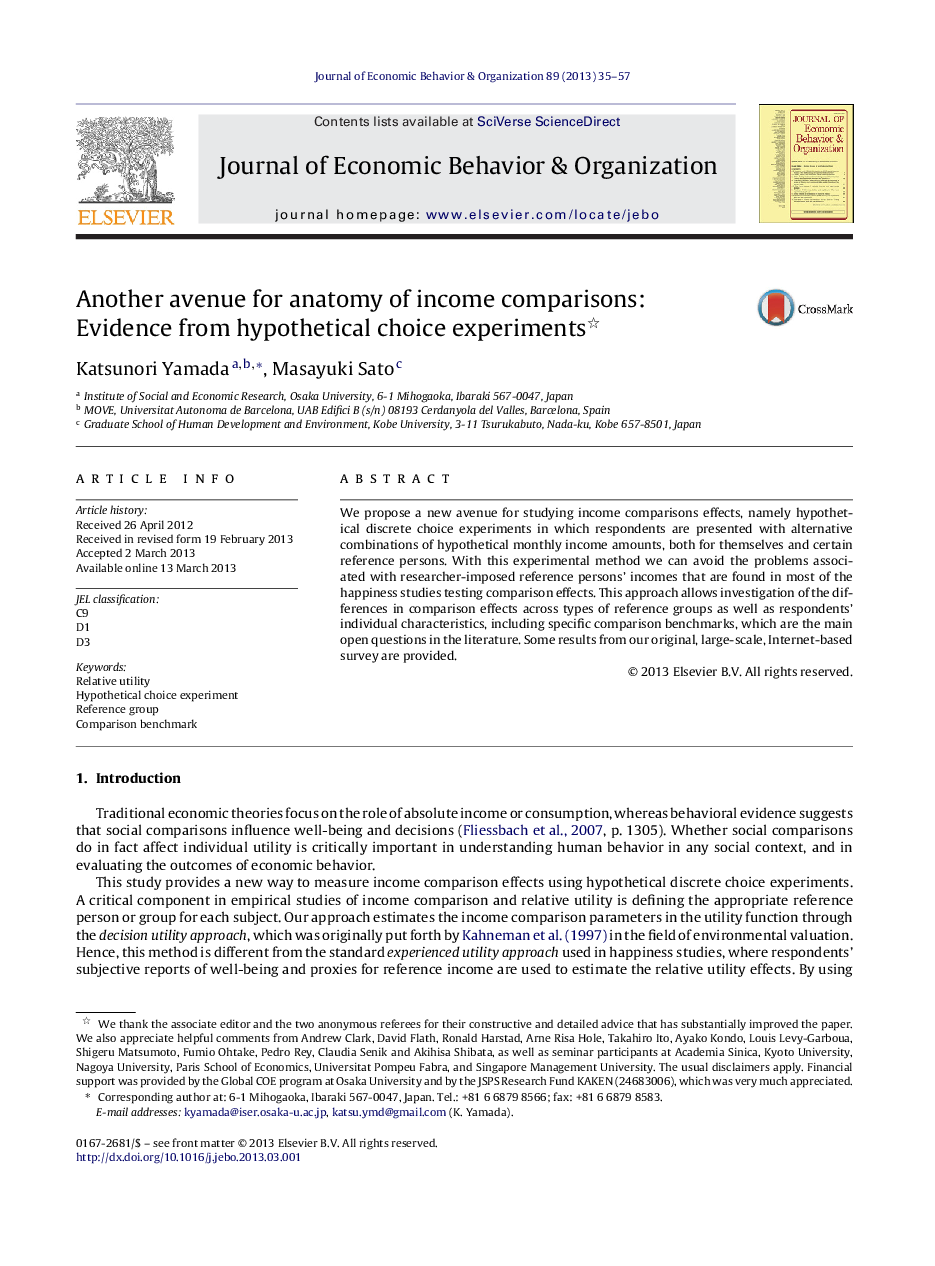| Article ID | Journal | Published Year | Pages | File Type |
|---|---|---|---|---|
| 883643 | Journal of Economic Behavior & Organization | 2013 | 23 Pages |
•We propose a new way of estimating income comparison effects via choice experiments.•We impose on subjects not researcher-constructed reference incomes but situations.•Subjects tend to be altruistic to those with lower incomes and toward the elderly.•Subjects tend to be jealous of those with higher education or more income.•Relative utility effects against friends are fairly diversified across subjects.
We propose a new avenue for studying income comparisons effects, namely hypothetical discrete choice experiments in which respondents are presented with alternative combinations of hypothetical monthly income amounts, both for themselves and certain reference persons. With this experimental method we can avoid the problems associated with researcher-imposed reference persons’ incomes that are found in most of the happiness studies testing comparison effects. This approach allows investigation of the differences in comparison effects across types of reference groups as well as respondents’ individual characteristics, including specific comparison benchmarks, which are the main open questions in the literature. Some results from our original, large-scale, Internet-based survey are provided.
